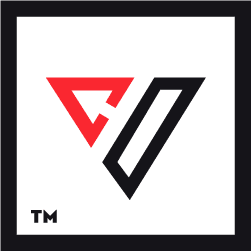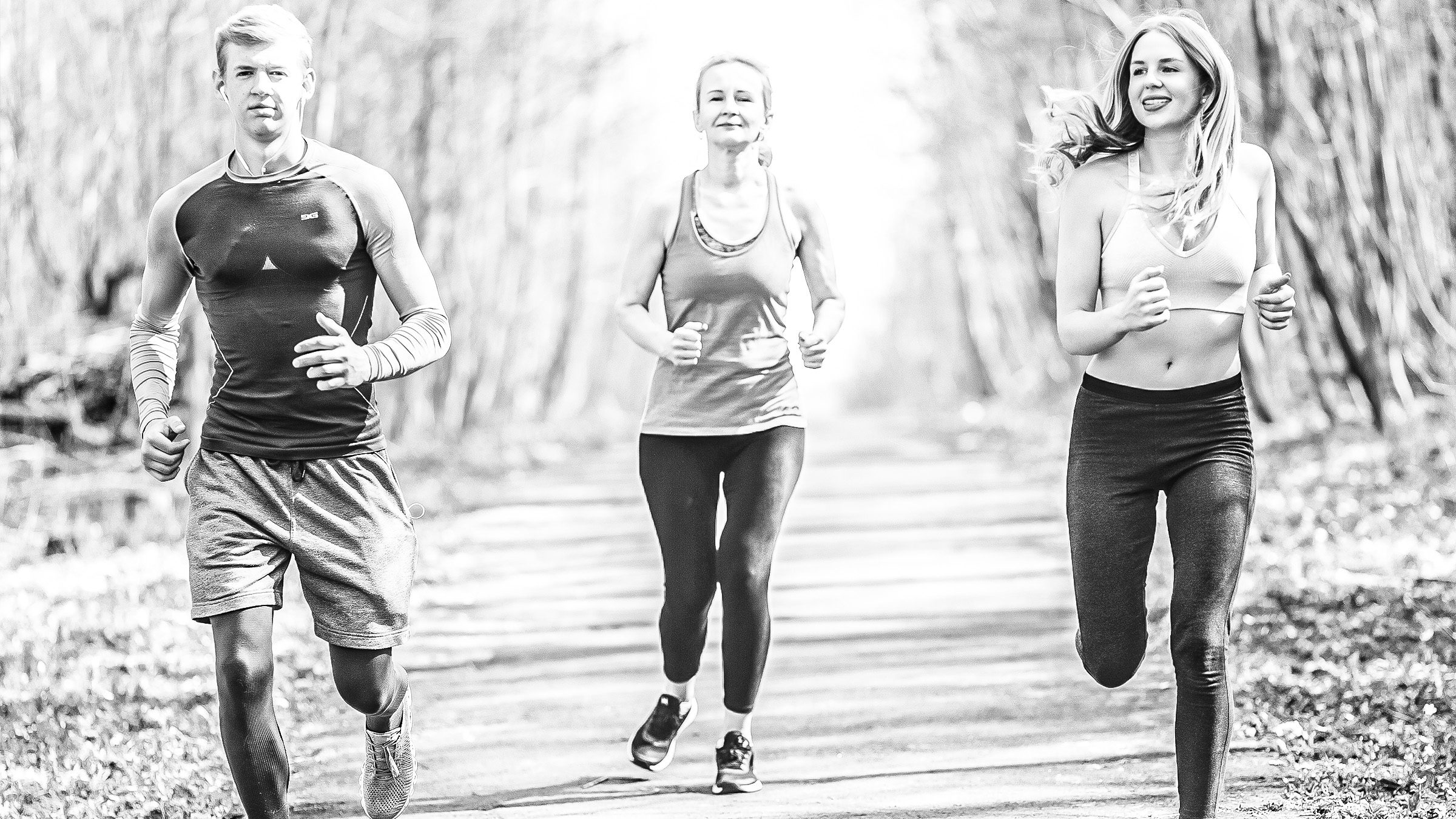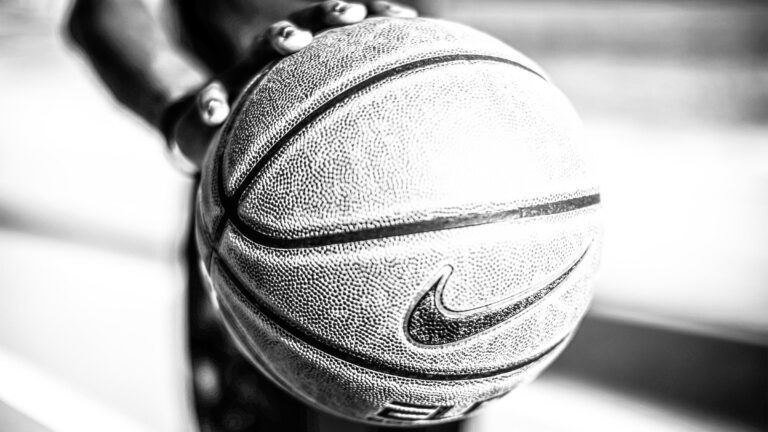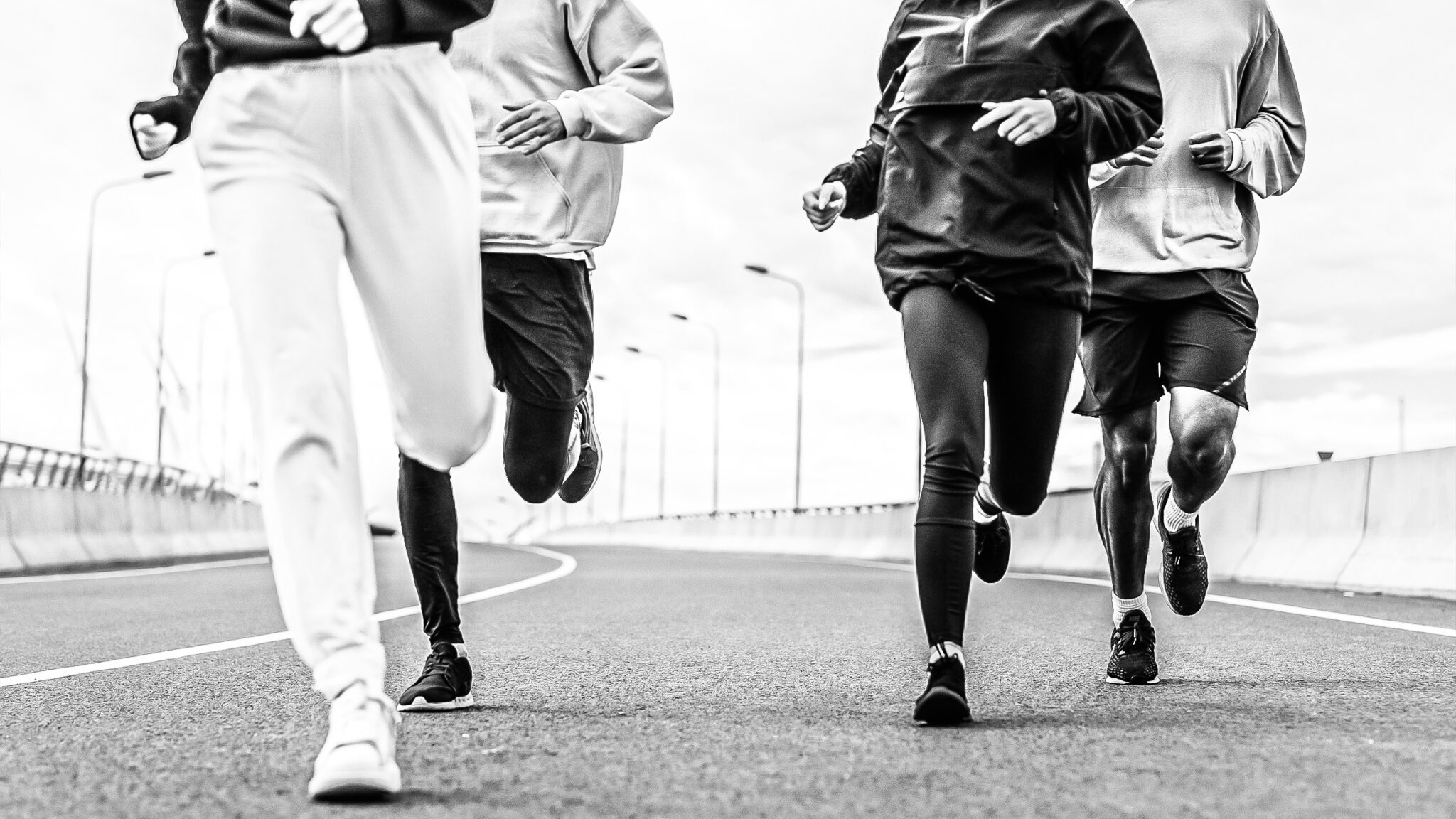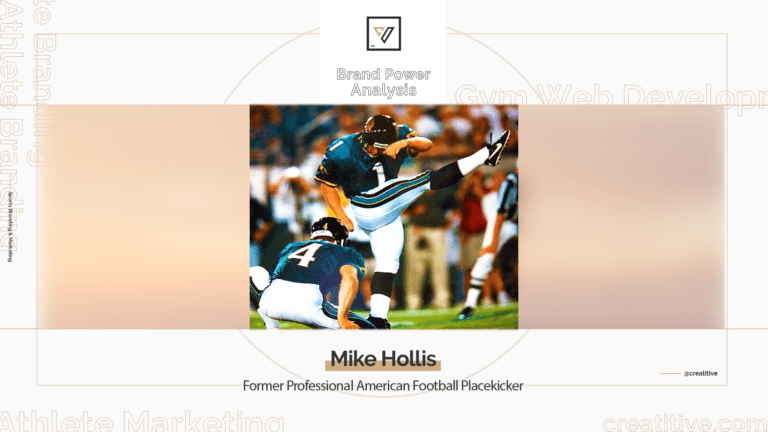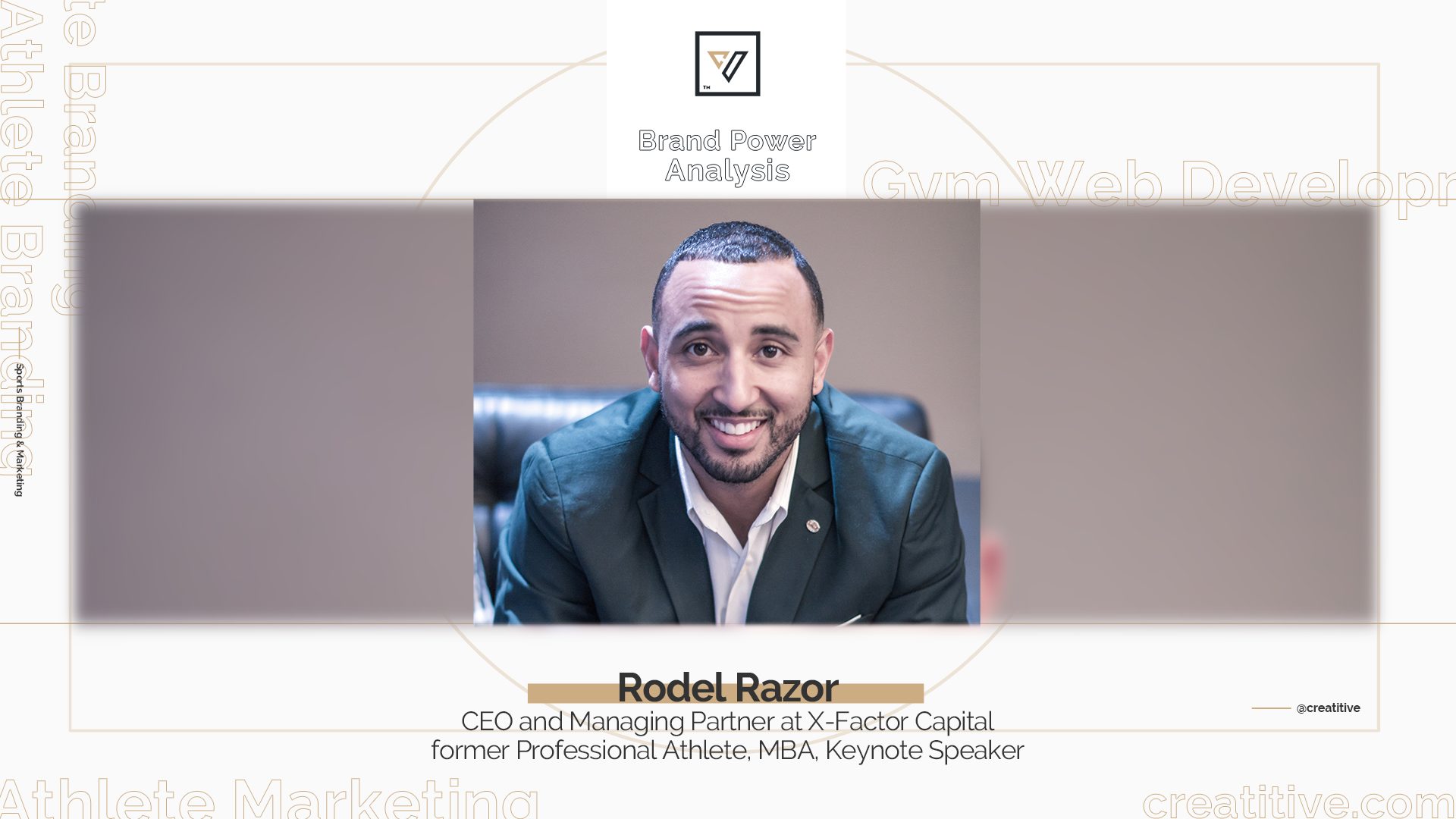Creatitive:
All right. Cool. So I want to thank you guys for, uh, being on the brand power analysis podcast. Uh, why don’t you first start off by telling people who you are, and then we can kind of dive into a little bit about your journey?
Gabe and Judes Story
Jude Adjei-Barimah:
Hello, my name is Jude Adjei-Barimah I’m from Columbus, Ohio. I am a former NFL player who played for the Buccaneers and turned entrepreneur, and I’m a partner,
Gabe Martin:
I was born and raised in Flint, Michigan, a former NFL player who played four years with the Arizona Cardinals in the new Orleans saints, now a serial entrepreneur.
Creatitive:
Nice. So with that said, uh, tell me a little bit more about your journey to, uh, how you guys did both became NFL players.
Jude Adjei-Barimah:
First of all, I’d like to say that I started out by actually being a soccer player when I was younger. So being born in Italy, I, uh, picked up on soccer as my sport of choice. It wasn’t until I moved to the States, uh, right around probably middle school, I say, because when I started really like, kind of try and football and, you know, seeing that the soccer, the game of soccer wasn’t as popular in the States as it was over a year. So it started transitioning to football and it wasn’t really until, high school that I feel like I finally got my first experience of, you know, actually knowing and actually knowing how to play the game to its fullest. And that’s when it just turned into a passion. And I was able to, you know, gain out of athletic scholarship to bowling green state university, where that’s where I made game.
Gabe Martin:
Yeah, for me, I guess sort of similar to Jude, I was, I liked basketball growing up. I wanted to play basketball, wanting to be the next Kevin Garnett. , and then, uh, I only played football just because my friends played it to be honest with you. , and I just, I was blessed enough to be talented. , but everything I did, I always worked hard at it. , I never, I never played anything, not wanting to be the best adjective. So, that competitive nature, kind of propelled me on when I started taking football seriously in high school. , and I just took advantage of the opportunity and was blessed enough to get a chance for a scholarship at bowling green state university again, which is where I met you.
Jude Adjei-Barimah:
So then, I think throughout that time, it wasn’t until, for me personally, after my freshman year in college is where I really started taking football seriously. Like I think I always had the dream and aspiration, you know, to play ever since, you know, joined in a year, literally high school, but I think it wasn’t until college that I was like, Nah, I really want to do this. Like for real, like I’m going to give it my all. Like, so that’s when I think, you know, our, as a class in college, back at bowling green and that year, we kind of took an attitude toward becoming committed towards the game. And I took a lot more than just what was required by the coaches or the infrastructure that was already in place. We needed a lot of things extra on our own, as a team, or as a player in order to get an edge on the field. And that took a lot of extra, uh, working out a lot of extra film study, a lot of extra recoveries. , and that’s kinda like where the, it kind of transitioned from just being a game to where I took it as it was like, you know, I wanted this to be something that I ended up doing for a living
Gabe Martin:
I’d say pretty similar to the, uh, we were in the same class. We came in the same year. , so that, that transition to really, really, I think the biggest thing was a lot of us that came in in our class. We weren’t used to losing. So, we had all come from our different respective programs where we, we have found a way to win and, and our program in college, it just necessarily, it just wasn’t necessarily the case. , and so we took it upon ourselves to say, like, as we were redshirting, we were, we were taking advantage of that time that we were going to a, become a cohesive group within ourselves, and push each other. So when we got our opportunity to step on the field, we want the losers. , and so that, that, that competitiveness, and that like do it or die to try and basically, kind of propelled us to start to have success on the field. And, I just, I fell in love, with the process and fell in love with that process. Obviously, I love the game of football and gave me the opportunity to do something I love at a professional level, which in turn, was playing in the NFL.
Creatitive:
Yeah. Yeah. That’s, that’s great. So when did you guys kind of, when did you guys get to the point in your career as an athlete where you kind of realized that, Hey, we want to take our passions on the field and kind of grow something off the field?
Athlete Experiences
Jude Adjei-Barimah:
I think, really when we were going through, I guess the system is what you call it, right? The recruiting, and then the college experience. And even as trying to transition to any NFL, because obviously, neither one of our paths into the NFL was like traditional. So there wasn’t, you know, we, I wasn’t drafted, neither was gay. You what I mean? So we literally, came on to the NFL as undrafted free agents. So when you come on like that, you don’t really have the branding or the name, especially coming from a small school, you don’t really have what other athletes can leverage. So a lot of time people and fans and people knowing them as athletes had been to the NFL, whether because they’re drafted or whether, because of other things. So for us also being business students in college, it was always thought for us to really use the platform of being an athlete to then be able to build something for ourselves. That’s bigger than just our skillset on the field. So, we had to really like trying to create, something special and it didn’t really, uh, work, uh, to just use our athleticism or just, you know, our accolades on the field because that wasn’t as recognized coming into the league as an undrafted free angel, we have to earn our keys. Do you know what I mean? So it made you be creative in different ways that you need to kind of like funnel your energy and try to build different things off the field.
Gabe Martin:
Yeah. I think the goal was always to inspire. , and that that’s from the time when I was in college and my nephews were coming to football games and just watching how excited they get and you know, that they actually know football players and that was cool to them. , and then transitioned to the NFL, same exact thing. So now there are more people that are looking at you as an inspiration and, you, you know, that you have influenced, uh, in a sense, and then, you know, Jude and I, and I, I can, I can take you back to the exact day when we decided that we were going to just establish an LLC. And this was in January 2017. , we were like, okay, we’re going to do something where we can help people. The goal is to build something where we can help people. We didn’t know exactly where we were going to do yet, but we were just like, let’s start a LOC. And so that’s what we did. We didn’t do anything with it, but like that’s when the, the incubation process, I guess, uh, started for us. It was back in January of 2017, we were like, we’re going to do something to, to build something, to help others and continue to inspire people. And then fast forward to now, that’s kind of what sparked everything
Creatitive:
You guys are. The prime example of when I, when I kind of talked to athletes, kind of taking their passions on the field and figuring out a way kind of getting to that point where you kind of see that being an athlete is really a business and less so a career. And that there are certain aspects that you take away from the game that can help you transition into a business that you’re passionate about. , with that said, you guys kind of mentioned that there are certain things that you did, and right. You’re doing pro-recovery zone, which we’ll talk about in a little bit, but how, what kind of things did you find out? What kind of pain points did you see while you were playing the game that led you to open the pro-recovery zone?
Gabe Martin:
Injured, injury, injury? , I mean, we between him and I, we’ve had so many surgeries and, uh, just different nagging injuries and things like that that have put us in a, put us in situations where we had to recover. , and we had to recover quickly, like we’ve mentioned before we were undrafted free agents. So the more time you spend in the trainer room, uh, the, the less chance there you go. And so, like, what, what that did for us was, you know, it, it, it propelled us to want to push, to recover better and make sure that we’re staying on top of things. So when we started developing the idea for the pro-recovery zone, we had already lived all of this. , and, and in turn, it was again, a situation where we would be able to help others and, you know, people deal with different injuries and different pains and things like that. And Emily and friends used to always ask us, like, what can we do if this happened? What would we do if that happens? So it’s like, it was always bigger than us now. We just had the opportunity to bring it to the forefront.
Creatitive:
No, that’s great. That’s great.
Jude Adjei-Barimah:
Yeah. You look at the, also the side of the education piece of it, because, uh, as much as we use some of these recovery modalities, you know, to get back on the field, obviously the end result that results in us being in per copies on right now is us ultimately not being able to get back on the field, right. And, or choosing not to be able to get back on the field. And I feel like the education portion that happens with that is while we were in the league, I think we realized that a lot of athletes were not maximizing their platform to actually create something while they were playing. And oftentimes waited till it was too late. And they were out and two or three years later to try to figure out some things and scramble some money together to either create a business or a brand, but while they were playing, these athletes are already a brand they’re already kind of like in a state where they are their own business.
Jude Adjei-Barimah:
So ultimately, the education piece for me comes from the fact that I didn’t always, you know, use these modalities maybe to the best of my ability as I should have. So it’s, I’m in a position now to be able to educate the younger generation on how to recover properly and how to maximize all of these new opportunities and technology and things that are going on. And in the same token, I also use my platform now to speak for athletes who are maybe shy about jumping off the porch about maybe starting a business, or maybe turning their brand and their network into a business of their own. And I just want to be able to be in a position to educate people on that and, you know, help promote that as well.
Creatitive:
Yeah, no, I mean, that sounds great. That’s very similar to what I’m kind of trying to do because I feel like as you, as you kind of mentioned, there are certain things while you’re in the game that transition over in the kind of lead to my next question, that make athletes such good business owners. But I think that because of the focus as an athlete-focused so much in the game, which they should be, I mean, cause that’s their job at the time, that’s kind of what they’re doing. They should take a little bit outside and, and kind of grasp that, that, uh, that ability to realize that our find someone to help them or grow something on the side, that if it’s gonna help them when they get out and leverage that. And basically, these fans love these, these fans look up to you, they admire you.
Creatitive:
So they’re gonna already have, you’re already going to have that trust as an athlete towards these standards. It could be, you know, younger players, it could be other athletes, uh, in the game and to just be straight fans in general, are looking to recover or do something like that. So, with that said, what, do you think makes you an athlete? And you could speak for all athletes, if you want with weight, what your thought process is behind your, what you’ve gone through, what do you think to make athletes such good business owners?
Jude Adjei-Barimah:
I think what makes athletes, uh, such good business owners honestly, or gives them the potential to be subsequent business owners is just the structure of just life that they’ve been through. I mean, you think about it even since high school, the decision to go to training camp in August is really giving up your summer to go be where hot pads and helmet and be out there with a grown man, yelling at you, screaming at you to play a contact sport. That’s probably going to hurt. You know what I’m saying, while all your friends are at the pool, you know, hanging out with girls and all of that stuff. And you’re out there in the sun or whatever the conditions are. If you’re in cold weather, you’re in the cold weather and you’re, you’re, you’re in there and you’re, you’re trying to do something that is extremely difficult because football is an extremely difficult game.
Jude Adjei-Barimah:
It’s the ultimate team sport, you know, and I can speak for football, but I also can speak for other sports that take an incredible amount of discipline and sacrifice to repeatedly go out there and do something every day, whether it’s good or bad and the unwavering of the conditions around you, you’re expected to perform. And I feel like that’s what drives business performance. And I think when you transfer those things, that athletes learn coming up through the high school college, and then at the pro level when there’s an immense amount of pressure to perform on Sundays. I mean, I feel like performing a business there, and it’s not, it’s not even asking the athletes to do something hard. You know what I mean? I mean, I could remember my first start in the NFL, uh, we were playing the giants and I found out like 15 minutes, five minutes, maybe before the game, I found out after the National Anthem that I was going to be a starter.
Jude Adjei-Barimah:
And the other side, they got Eli Manning over there and Odell Beckham jr. And I’m about three, or four weeks off the practice squad. But I knew then there, that I’ve been here before, you know what I’m saying? It was just a different level. But in college, I was throwing my first start at West Virginia and one of the most hostile places to play in college football. So all of those things are just things that are acquired through repeated behavior. And that’s what a lot of athletes, you know, experience. And when you add the structure that you have to be somewhere, somebody is opening you accountable. So then, in essence, you learn how to hold others accountable. It just makes for good business all across. I feel like it makes for athletes to be able to be leaders in their own business. And I feel like the promotion for athletes to become the leaders of their own businesses, whether it’s an actual operating business or a brand. , I think it’s, it’s great, it’s a great idea. And it’s a great movement to push because, uh, w we have what it takes, uh, I think we’re equipped to do so.
Opening Cryo-Therapy Center
Creatitive:
So, so as of right now, I know you guys opened a couple of months ago and you kind of were at that point and let’s, let’s just disregard the certain situation at hand, but, uh, have you felt like you’ve dealt with certain struggles that are very similar to when you were in the game, like struggles in a business aspect? Because to me personally, I’ve noticed that I’ve seen a lot of struggles that I go through in my business. I’m like, man, this, this kind of reminds me of when I played soccer or when, you know, I did this and I learned this, this struggle, you feel like you’ve dealt with stuff with those already in it. You’re like, Oh man, I’ve kind of dealt with this on a much higher level. And that’s why it’s so much easier for me to surpass it.
Jude Adjei-Barimah:
Absolutely, absolutely. I think one thing that I’m very, or I think one thing that, especially playing football, my position, one thing that taught me playing football taught me, especially playing quarterback is to have a short term memory and not to also let your frustration or displeasure show with your body language and to always be even killed. So even though business right now with COVID and everything going on and the slow traffic, and that’s not even being able to ramp up businesses as fast as we want to and us not really having opportunities, maybe to market ourselves as much as we want to do it all. I can’t let it show because I got I’m managing employees. I have a team, I have people over there looking at me and they, my, if my body language is going down and looking like I’m Opie every day, then everyone around me is going to be affected by that.
Jude Adjei-Barimah:
And then that’s going to affect our performance. And it’s the same as being on the field. Do you know what I’m saying? Just because I gave up a few passes or gave up a touchdown or two, well, if I start looking at like, I’ll give up, I gave up and I’ve defeated everyone else around me is going to lose confidence in me. And eventually, we’re not going to be successful. So things like that, I always see, and I remind myself like, man, it’s just, this is just like being on the field. Do you know what I mean? Like there are things that are happening that are under my control and things are also happening that I have no control over, but either way, I have to keep the same even-kill attitude and just keep pushing forward. And I feel like that’s what, you know, kind of is able to sustain me throughout this journey.
Creatitive:
I liked how you mentioned short-term memory because kind of what I’ve noticed as I’ve grown my business is that you get to this point in your head where you’re like, I do have to think about the five, 10-year plan, but if I overthink long-term then all the, what ifs, all the, what is happening right now, I’m going to make me too anxious over. I’m gonna feel like I’m not doing it. I’m doing it too fast or too slow. It’s the curse. It’s the curse. You know, it’s, it’s, you’re always getting ahead, but you’re always feeling like you’re getting behind as well. And, uh, so,
Jude Adjei-Barimah:
And the short-term memory is more for like things that you do. Like we bumped our heads a ton getting to this level, both those athletes. And as, as businessmen, you know what I mean? And it’s like the short-term memories in the aspect of not harping on those past experiences is to like, to be too hard on yourself, on, you know what I mean? Because you have to bp your head on your way to the top. You have to bp your head to be successful. You have to give up a few touchdowns eventually to make the big play. Do you know what I mean? You have to see those struggles even in business in order to be successful. So it’s really about just forgetting about those things and then moving on, you know what I mean, really, truly turning the page on those mistakes, learning and then growing, but just really moving on and not hanging on those mistakes or having fear to move forward because you bumped your head so many times because you’re going to bp your head.
Common Business Mistakes
Creatitive:
I think it’s a common business thing that I see a lot of business owners make the mistake of it’s not learning from their mistakes and keep doing the same thing over and over wrong or vice versa. It’s the same thing. It’s a lot like when you, when you have expenses to get certain expenses and you push with those expenses and then, you know, five months later, you’re like, well, should I get rid of this? I don’t know if it’s working or not this and that. So no, that, that makes total sense. , so what are some things athletes can learn in regards to building their brands, from other business owners,
Jude Adjei-Barimah:
Number one, I say you use your network, use your network a ton, because, you, as a brand, you, you’re only going to be able to show who you are to the people that you know, but you have to allow yourself to use the people that you know, why you have the platform. And what I mean is for instance, while we were in the league, a lot of times there were times we went out and did community service, or we did outreach to businesses and local business owners would reach out to players to try to build relationships, whether that was for sponsorship or advertising at the time it was for, it was just purely philanthropy and community service. There were resources there. And a lot of times, they were presented to us in a way that we had to feel obligated unless we had a passion for the business or we’ll have less, we, we had the passion for the movement.
Jude Adjei-Barimah:
So I think the number one thing athletes need to do is figure out what they’re passionate about before or outside of the game and use the platform that gives you the outreach to those places and build those connections. Because after football, those are still the people that are really going to want to work with you and are still going to want to push your agenda outside of football. Because once you’re done playing for a team, you can use that team no more to promote yourself. You get what I’m saying. So it’s better to get linked in with a business or an organization that can help you promote yourself and your agendas off the field because they’re not going to be a professional platform. Do you know what I mean? And as you build different, you know, networks through your professional platform, you can do so many things and are able to, you know, do so many things over different platforms, whether it’s clothing or whether it’s, , after school programs or whether it’s being a trainer yourself, or it’s whether what we’re doing in the recovery space, there. So many different aspects of a banana athlete’s life that are able to be optimized by just using your network and just people that you’re exposed to every day. So I think that’s the number one thing they can learn from business owners is because business owners understand that they’re only as valuable as the people that they know, and then they use those people. And once those people become your network, that’s how your network then expands. Do you know what I mean? So that’s just a little bit of what I think would help.
Creatitive:
Yeah, no, that’s, that’s, uh, that’s definitely something that, especially for those athletes that are more introverted, to kind of learn from is, you know, me as a business owner, I had to learn to become more of an extrovert. You have to, you have to, especially in this day and age, how, how can you, how do you think you can help athletes? Let’s talk about pro recoveries a little bit there. How are you helping athletes, uh, move forward with their career and their business slash, evolving in what they’re trying to do? , I think,
Jude Adjei-Barimah:
For pro-recovery zone, we’re, we’re just showing that this athlete-centric environment, with, uh, the protocols and everything that we have in place, how there’s a link to it with which your everyday person and, being that we’re, we’re actually trying to create a space where, you know, athletes and the fans or fans of athletes and what they do to recover, what they do in their everyday lifestyle can actually connect because you get to go here, come here and actually go through an athlete experience. And, you know, we’ve been grateful enough for the short time. We’ve been open time. A lot of pro athletes come in here and share, you know, maybe time and experiences with, uh, clients that couldn’t get to see and interact with these athletes on, on, on an everyday basis. As for the athletes, I think providing inspiration because, a lot of athletes, one to see or themselves transition career-wise and to something that they can then have passion and something that they don’t really have to like, you know, sell too much.
Jude Adjei-Barimah:
Do you know what I mean? Like probably Kirby’s and all we’re doing here is like, literally, like Gabe said something that we could live. You know what I can show you pictures of me three, four, five years ago when I was playing in a crowd therapy type on a stretch table or in normal table boots, you know what I mean? So the passion that has driven behind it and the way it happened in a transition, it was all led by just us trying to seek a way we could help. You know what I’m saying, a way we could help a way we can have a solution to a problem where we felt like a lot of people educated about the recovery aspect of their wellbeing and how much they need to be able to recover their bodies, as much as they’re working out and put the right foods in their body, they need to take the same aspect of that recovery as seriously.
Jude Adjei-Barimah:
So there’s two, there are two aspects of it where I feel like we’re affecting the inspiration that’s coming from us, being able to transition as, as athletes from something we did as athletes into now into a business. But then also connecting that athlete in the clients that we have come in and let them know that they can live a light lifestyle professionally. Do you know what I mean? And, , because we have a lot of clients who are doctors and dentists, and they work these jobs where they’re behind the desk, or they’re hunched over every day. A lot of these modalities helped them recover and bring their performance out of bringing the best out of their performance in professional life. But that’s the same thing as these athletes are using these modalities for it’s to perform the best on the field on Sundays. So I feel like we’re kind of bridging that connection a little bit and the education of it. So it’s pretty cool.
Interview Outro
Creatitive:
No, that is pretty cool. And I’m eventually excited. I know with everything going on, I haven’t been able to, you know, come in yet. I’ve been here right now, actually, we’re kind of doing a, an inner, uh, podcast and the other room, but, uh, so we’ll go around and we’ll take pictures and I’ll throw it up with the podcast. So people can kind of get a look at the facility and things of that nature, but I’ll definitely have to try it out soon. You know, I’m like, I was like, I was ranting with you earlier. I’m getting, I feel like I’m getting free city fat right now. And I’m kind of trying to, I’m trying to get back into the groove of things. And I’ve had a lot of problems with my arms over the years and stuff like that. So I’ll have to give it a shot and throw up a review of someone in some way form or another at the process and how it’s helped me and all that stuff. But, uh, why don’t you, uh, why don’t we end off here and I can kind of, why don’t you just tell everyone where you’re located, where they can find you and, uh, places online. They may gather some more information.
Jude Adjei-Barimah:
All right. So we’re located at the, uh, Phoenix Biltmore fashion park, right across from the lifetime fitness gym here on the East end of the mall, 25 zero two East Camelback road, uh, in Phoenix. And, uh, we are wellness, crowd therapy lounge here to elite, uh, restoration. And, uh, we’re here to recover you. And, uh, there’s no recovery like pro-recovery, right?
Creatitive:
That’s I love the tagline
Jude Adjei-Barimah:
Credit recovery. And you can find as well, all the socials, Instagram, Twitter, Facebook, or LinkedIn as well, online we’re very, user-friendly, uh, come to book an appointment and come see us and see how we can help you live your best life.
Creatitive:
Perfect. Well, thanks again for being on, uh, the brand power analysis podcast.
